Burundi media regulator-CNC has published its annual report. Iwacu newspaper is accused of serious misconduct.
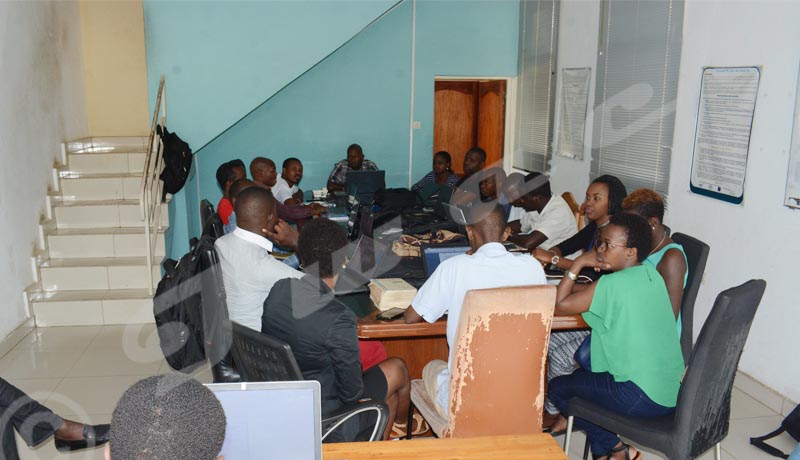
The editorial staff of Iwacu newspaper in the morning conference on July 11, 2019
During the presentation of the annual report on the Burundian media situation this July 9th, the chairman of CNC has accused Iwacu newspaper of publishing unbalanced information stirring up trouble, slander, etc. ,. An inventory has been drawn up. Nestor Bankumukunzi spoke of many shortcomings for each edition where at least one or the other article contains imperfections. “There are passages that slander people which the law cannot tolerate and which are punishable by the law governing the press,” he said.
For this state-run media regulator, Iwacu newspaper has been repeatedly given advice but the result is disappointing: The newspaper has remained insensitive to advice. “A warning will be sent,” added the chairman of CNC.
“We cannot tolerate such shortcomings which remind the unfortunate consequences that we saw in previous years,” said Mr. Bankumukunzi.
Iwacu newspaper is increasingly receiving criticisms from this media regulatory body. Its online discussion forum has been closed. Users are no longer allowed to give their views on different issues.
The crisis that erupted in 2015 did not spare the media. Five media organizations were burned and ransacked. Three of them have not reopened yet. Several journalists were forced into exile.
Since then, the media have often been subject to serious accusations.
On March 20, 2019, the CNC ordered the suspension of the BBC from broadcasting and extended the suspension of Voice of America (VOA) until further notice. CNC has also prohibited anyone on the Burundian soil from giving “directly or indirectly information that may be aired” by these international radio stations.
Burundi occupies the 159th position out of 180 countries in the 201 9 World Press Freedom Index by Reporters without Borders-RSF which says to be concerned about the narrowing of the media space: “Everything is done to keep journalists under pressure.”
Reactions
Gabriel Rufyiri: « It is more than urgent that the CNC works towards promoting freedoms”
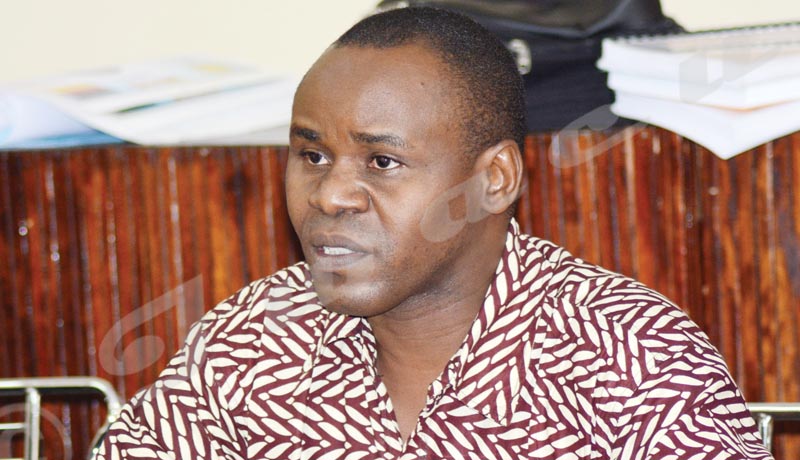 According to the president of OLUCOME, a local corruption watchdog, Iwacu is an internationally renowned newspaper. Its journalists work as hard as they can to give balanced information. The National Communication Council should congratulate Iwacu for giving everyone the floor. If mistakes are made, the ethical code gives the possibility of right of reply and rectification. OLUCOME calls for an interactive dialogue that aims to promote the freedom of the press and the freedom of opinion.
According to the president of OLUCOME, a local corruption watchdog, Iwacu is an internationally renowned newspaper. Its journalists work as hard as they can to give balanced information. The National Communication Council should congratulate Iwacu for giving everyone the floor. If mistakes are made, the ethical code gives the possibility of right of reply and rectification. OLUCOME calls for an interactive dialogue that aims to promote the freedom of the press and the freedom of opinion.
“We cannot speak of democracy without talking about a free press which is capable of saying the truth that pains but with professionalism.”
According to Gabriel Rufyiri, it is very urgent that the CNC works in favor of freedom, otherwise, we risk moving towards the narrowing of the media space. “It’s important to let people express themselves,” said Mr Rufyiri.
Kefa Nibizi : ” Iwacu job is generally good.”
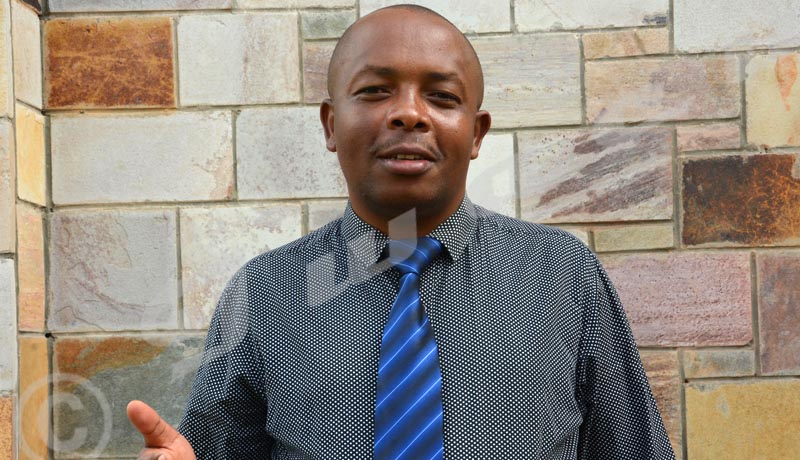 The president of Sahwanya Frodebu iragi rya Ndadaye party assures that Iwacu newspaper offers a space to his party. “Our statements are reported professionally.” Kefa Nibizi says that Iwacu’s work is overall good. “We invite Iwacu to be in contact with CNC which would show the newspaper which articles contain shortcomings, all this to improve the relations between the two.”
The president of Sahwanya Frodebu iragi rya Ndadaye party assures that Iwacu newspaper offers a space to his party. “Our statements are reported professionally.” Kefa Nibizi says that Iwacu’s work is overall good. “We invite Iwacu to be in contact with CNC which would show the newspaper which articles contain shortcomings, all this to improve the relations between the two.”
Agathon Rwasa: ” CNC should not seek to silence the media.”
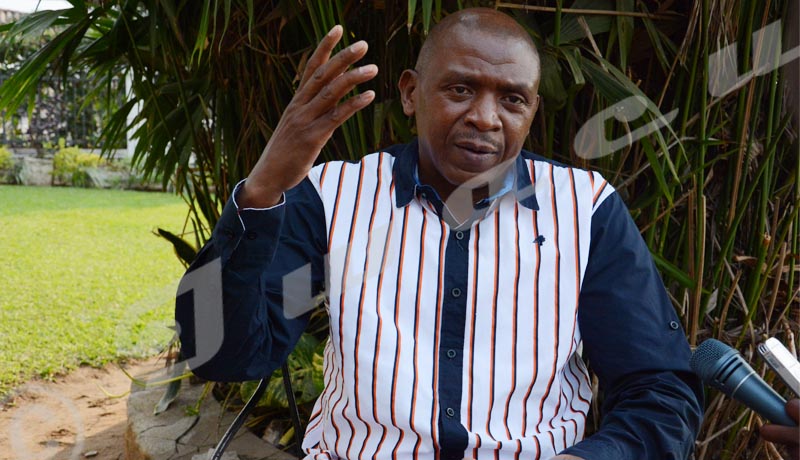 For the president of CNL party, the National Communication Council lacks neutrality in its analyses.”There are some online publications, Rema Fm radio, which are not worried while they do not balance their information”. Agathon Rwasa instead sees a problem of information management. According to him, Iwacu newspaper is targeted because it speaks about the daily life of the population, human rights violations. “CNC should rather seek to strengthen the media promoting democracy and the people instead of trying to silence them.”
For the president of CNL party, the National Communication Council lacks neutrality in its analyses.”There are some online publications, Rema Fm radio, which are not worried while they do not balance their information”. Agathon Rwasa instead sees a problem of information management. According to him, Iwacu newspaper is targeted because it speaks about the daily life of the population, human rights violations. “CNC should rather seek to strengthen the media promoting democracy and the people instead of trying to silence them.”
Onésime Harubuntu: “The voice of administrative authorities is required to balance information.”
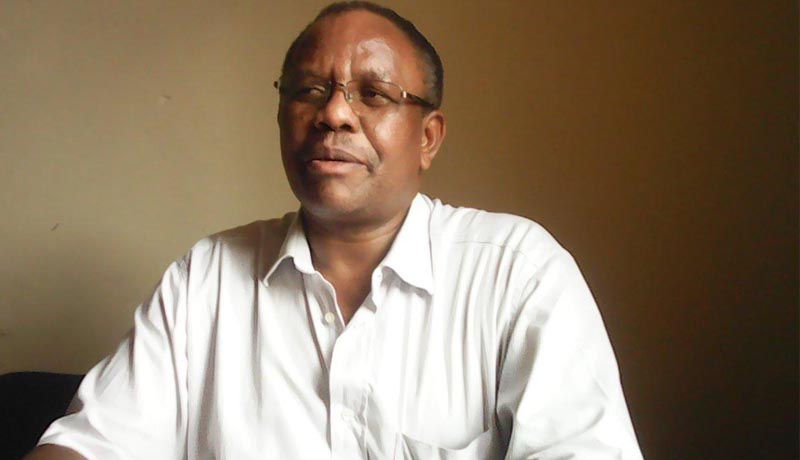 The president of the Association of Burundian radio stations (ABR) welcomes the report by CNC which shows that it is doing its job. He nevertheless urges CNC to favor dialogue and advice rather than sanctions. According to Onésime Harubuntu, the journalist must always be professional in their work, respect professional ethics to avoid any reproach. “State authorities need to be more available to give feedback or react to help balance information and facilitate the work of journalists.”
The president of the Association of Burundian radio stations (ABR) welcomes the report by CNC which shows that it is doing its job. He nevertheless urges CNC to favor dialogue and advice rather than sanctions. According to Onésime Harubuntu, the journalist must always be professional in their work, respect professional ethics to avoid any reproach. “State authorities need to be more available to give feedback or react to help balance information and facilitate the work of journalists.”
Charles Nditije : ” This is a way to ban this newspaper that works with professionalism and competence”
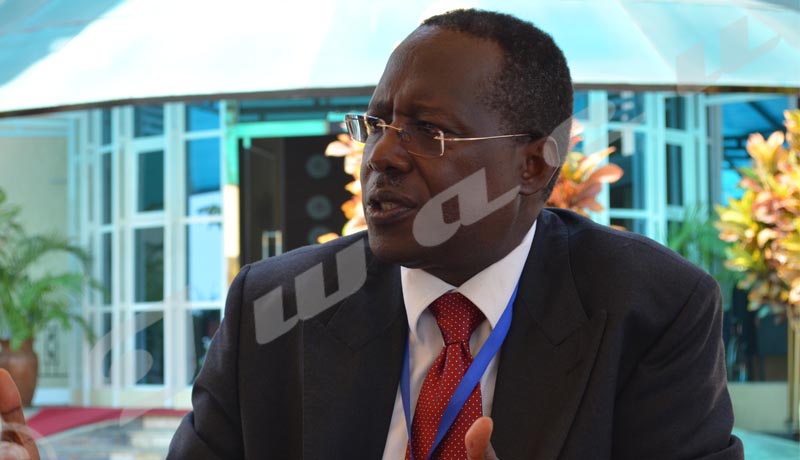 According to the exiled president of UPRONA party of the opposition, this is not surprising since CNC has become an instrument of power to punish and censor independent newspapers and media. No real fault is given by the CNC chairman. Just globalized accusations. “Are there any media that provide unbalanced information than the public media or those close to the power?” This is a way to ban this newspaper that works with professionalism and competence.
According to the exiled president of UPRONA party of the opposition, this is not surprising since CNC has become an instrument of power to punish and censor independent newspapers and media. No real fault is given by the CNC chairman. Just globalized accusations. “Are there any media that provide unbalanced information than the public media or those close to the power?” This is a way to ban this newspaper that works with professionalism and competence.
Is Iwacu a troublemaker?
For some time, Iwacu has almost become a target for the CNC, which “generally” accuses it of almost all evils. Here are the accusations we often hear from Iwacu critics.
1. Iwacu as a clandestine “laboratory” to “destabilize” the country?
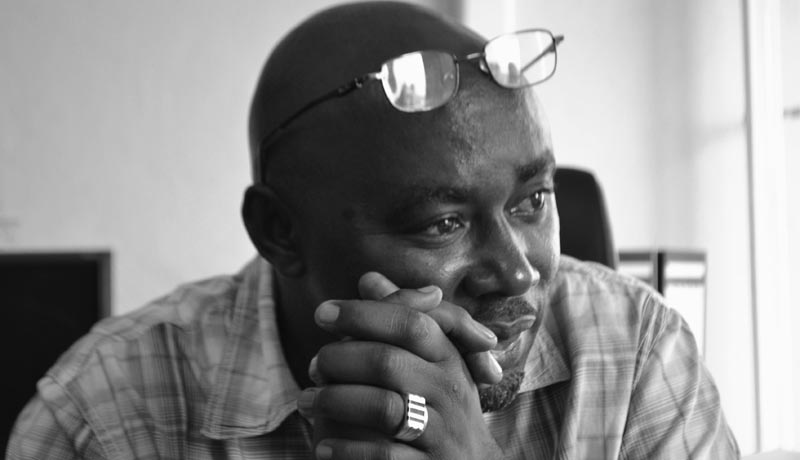 It’s false. In Iwacu, everything is discussed every morning during the news conference. If that “clandestine laboratory” exists, it’s called “the editorial conference.”
It’s false. In Iwacu, everything is discussed every morning during the news conference. If that “clandestine laboratory” exists, it’s called “the editorial conference.”
The CNC should know that every morning, the journalists propose and discuss the topics of the day. No topic whose origin is unknown is imposed to the editorial staff.
The journalist defends his/her topic. The editorial staff is always sovereign. Even Antoine Kaburahe, when he was still with us, his topic could sometimes be rejected for lack of relevance. He did not take offense. Accusing journalists of obeying orders from elsewhere is simply wrong.
2. Does Iwacu disseminate “slanders” and “unbalanced information”?
It’s false. Instead of vague and serious accusations, Iwacu would like to be tried on the spot. Journalism obeys rules. CNC should show the article and evidence supporting the reality of the accusation.
CNC could put online the shortcomings of our medium so that the people express their opinions over them. All I know is that Iwacu journalists try as hard as they can to balance the information gathered, to get the opinions of the authorities who are often reluctant to talk.
Every morning at the editorial conference, we insist on rigor, accountability. We always try to remind reporters of this principle of the balance of information. However, the most difficult thing today is to convince some authorities to give their version.
Getting an interview, a sentence, a word or even a greeting from some authorities is a big problem for private media journalists like Iwacu newspaper and Isanganiro. For example, a spokesman for a given institution has openly stated that he cannot “speak to Iwacu”.
On the contrary, the CNC should remember that a spokesperson for a public institution has the duty to speak. Retention of information does not facilitate the work of the press.
3. Is Iwacu in the pay of “colonizers”?
False. In the current economic context, the private press is not viable in Burundi. To keep up, Iwacu receives support from some co-operations and NGOs to be able to operate. Here, I can mention Belgium, Germany, France, Switzerland, the Netherlands, the United Kingdom, the United States, etc.
This help can take many forms : material support, training, etc. Of course, in an ideal world, the press should be completely autonomous. But this is not unique to Burundi. This is a situation that is observed in other African countries.
Even in advanced democracies in the West, the press even receives state support but this does not make it kneel before the governments. Back to Iwacu, if it indeed receives support from some countries “of colonizers”, they demand nothing in return.
Embassies even pay their subscriptions and the publication of their communiqués. The editorial staff does not take any instructions from any embassy.
However, I will not speak about the editorial independence of some media in Burundi which are well supported … the CNC speaks little about them.
4. Is Iwacu treated the same way as other media by the CNC?
False. With each CNC communiqué, the main and preferred target is always Iwacu as if it’s the only media. And yet, for some radio stations in particular, not balancing information has even become the rule. If the same zeal for fighting our media was extended to other media, we would understand that CNC has its eyes on all the media.
Some think that CNC is preparing people for an upcoming closure of the medium … What I know is that the CNC is doing one thing: instilling fear among journalists struggling to be independent or remain free. This may lead inevitably to self-censorship. It is worse than censorship.
5. Iwacu: A newspaper “under the orders of Kaburahe”?
False. Antoine Kaburahe is the founder of Iwacu Press Group. His strength is to have in place a structure that does not collapse after his departure. In jest, he often tells us that Iwacu “must survive after him.” He remains a beloved and respected figure in the house. He is available when requested but Antoine Kaburahe does not manage Iwacu daily. He sometimes reads the newspaper’s content like all other readers.
With departures and recruitments, there are even journalists that Antoine Kaburahe does not know and has never known.
But we always count on him for advice, remote coaching. He is good at coaching in journalism writing. Everyone, not just Iwacu, recognizes his professionalism.
But in principle, he imposes nothing. Saying that Iwacu “receives orders from Kaburahe” as the chairman of the CNC once suggested is a charge that does not hold.
Today, the founder of Iwacu is very busy with an important writing work for the collection “Témoins” (witnesses) of Iwacu editions and academic research.
He trusts those who took over. He knows that it is the journalists on the ground who must perpetuate the work he initiated. But he remains a pillar, an ambassador of Iwacu and all we wish is that he comes back to us one day stronger, and still finds us here.
We will say to him, “Here we are, we are still standing”. He will tell us this sentence by Taubira that he likes: “Sometimes to resist is to stay, sometimes to resist is to leave.” Then we will put together the experiences of those who stayed and those who left. Iwacu will come out even stronger. We believe in it.
Opinion by Antoine Kaburahe
Iwacu , an “institution to be preserved”
The journalist and writer Antoine Kaburahe, speaks about the threats to the medium that he founded in 2008. For him, Iwacu is important for all Burundians and must continue its work.
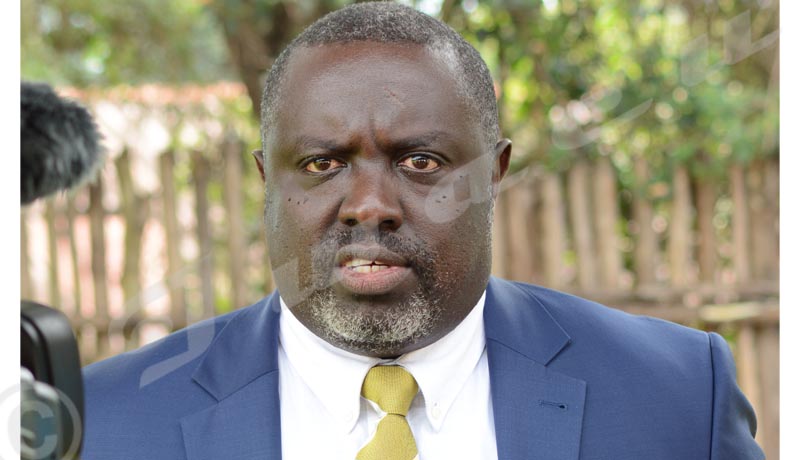 If my memory serves me correctly, I think it was Mother Teresa who said that “good projects always survive beyond their founder”. When I was forced to leave my country, Iwacu did not collapse, because it is a good project and does not belong to me. It goes beyond me.
If my memory serves me correctly, I think it was Mother Teresa who said that “good projects always survive beyond their founder”. When I was forced to leave my country, Iwacu did not collapse, because it is a good project and does not belong to me. It goes beyond me.
Iwacu belongs to the 54 people who work every day in difficult conditions to produce information. Iwacu is a weekly newspaper producing news in French and Kirundi languages, a daily Newsletter in French and English, a monthly magazine, a web TV, a web radio, a website (the most visited in Burundi) more present on Twitter and has a house of edition.
I always say that it is a small institution, a national jewel that needs to be protected and developed.
Iwacu, an open medium
Instead of threatening to close down this medium, CNC should instead play a more positive role such as calling to order those institutional communicators who made Iwacu the pariah.
They openly say they cannot give information to Iwacu or react to the allegations of citizens. Maybe just to trip up Iwacu which will later on be “accused of not balancing the information” by the media regulator.
From afar, I hear all the hypotheses which are far-fetched in my opinion. Some have learned that there is a plan to “close Iwacu before the elections”. I do not believe it. Why? For what crime? Because Iwacu gives the floor to everyone? Isn’t that exactly what a good medium should do?
Iwacu is all the “Voices of Burundi.” It’s our motto. It means all the voices, even dissenting voices because we believe that they must be listened to if there is democracy.
On these charges, the best thing would be for the CNC to act transparently and publicly expose “the crimes” of the newspaper. We are not afraid because we think that we respect, as far as possible, the laws of the profession. Burundi and the world have specialists in the media that could give opinions over the issue.
Of course, Iwacu can make mistakes. It’s human. But hearing the CNC, it would have become our hallmark. In the past, with former CNC President Karenga Ramadhan, for example, when problems arose, he called us, not to scold and threaten us, but to discuss together if there was an article that posed a problem.
The article was dissected line by line. It was a technical, educational and constructive work. In general, everything was going well.
And yet, like Mr. Karenga, the current CNC president is also a journalist. Nothing should, therefore, prevent such a process from being more constructive than selective and globalized condemnations.
Ten years providing information
Since Iwacu creation, we instilled a spirit of rigor among journalists. There were numerous trainings. Journalists went to improve their skills in media abroad.
Media specialists from major international media (Le Monde, The Guardian, etc.) came to work in the country with our journalists. Therefore, Iwacu became a breeding ground for many recruiters and a dozen colleagues now work in prestigious institutions or bodies. Sometimes, those who have gone elsewhere, tell me teasingly that Iwacu is a “training center.” I take this as a compliment. It is a guarantee of quality. And even the elders of Iwacu are serving the country…
Iwacu is not mine. It belongs to all citizens and closing it will be a failure, a personal drama certainly for forty people (journalists, graphic designers, printers, etc.) and their families, especially in the current economic situation.
But this will be a terrible regression in an already moribund media landscape. As a founder, I hope that this press group will continue its important work for freedom of expression in Burundi.
To the journalists, I repeat what I said to the editorial staff: “professionalism is your only shield. Do what you have to do.”
Finally, I know the aversion of the current president of the CNC, a former classmate at the university, against me. He should go beyond this personal attitude, because the issue is very crucial and goes beyond both of us. I also recall that I am no longer in the daily management of the press group.
Today, it is the future of an independent press that is at stake, the essential work for the country of many people and their families. He and I will not be there one day, but our institutions, CNC and Iwacu will survive. In any case, I wish it.
Written by Agnès Ndirubusa, Abbas Mbazumutima
Translated into English by Pierre Emmanuel Ngendakumana

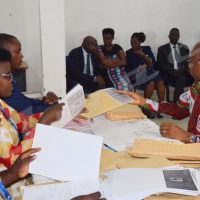
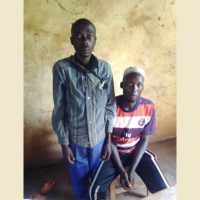

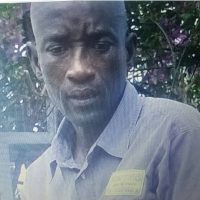
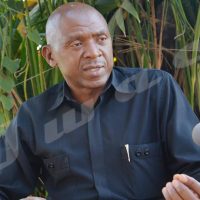













 IWACU Open Data
IWACU Open Data

